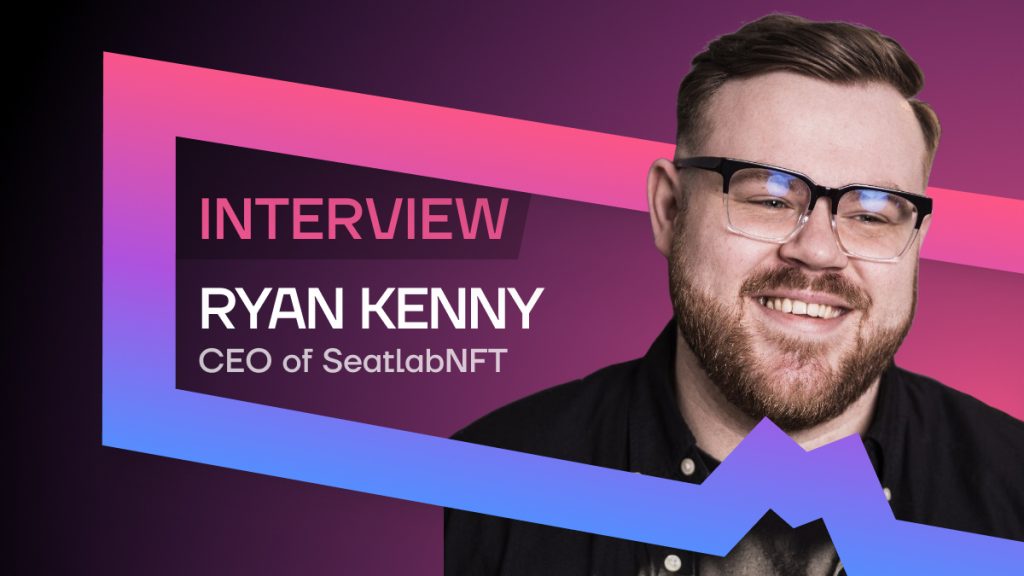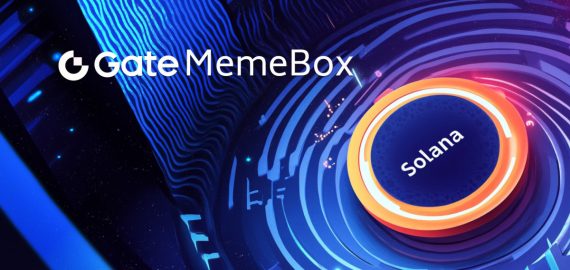Ryan Kenny, CEO of SeatlabNFT, explores how NFTs are changing the landscape of ticket sales.

Ticket fraud has been a longstanding issue in the event industry, enabling scalpers to manipulate prices through automated tools and sell counterfeit tickets outside venues, leading to heightened frustration and security concerns for both attendees and organizers. However, the emergence of NFTs has introduced a groundbreaking solution to tackle these persistent challenges.
The rise of NFT ticketing solutions offers a robust and clear framework for purchasing and trading event tickets. With blockchain-backed tickets, buyers can enjoy assurance regarding the legitimacy of their purchases, effectively limiting the ability of scalpers to exploit the system for financial gain.
SeatlabNFT One company, SeatlabNFT, is tapping into the potential of NFTs to tackle the ongoing challenges faced within the ticketing realm. By developing a decentralized platform that employs NFTs as tickets, they aim to foster a transparent and efficient environment for both event organizers and attendees. The integration of NFTs allows event planners to effortlessly monitor ticket transfers and uphold fair pricing practices.
In an engaging conversation, Ryan Kenny, the CEO of SeatlabNFT, delves into how these digital assets are revolutionizing ticket sales, the numerous benefits they bring to both organizers and visitors, and the hurdles the company has encountered while building its platform.
What first drew you to the NFT space, and where did your journey begin?
I immersed myself in the world of cryptocurrency back in 2012 and have honed a wide array of experiences in the field, spanning from trading and mining to delving into NFTs and web3.
Can you shed light on how Seatlab is utilizing NFTs to combat scalping and counterfeiting in the ticketing industry?
A significant flaw of conventional ticketing systems is their vulnerability to the creation of counterfeit tickets, which fuels fraudulent sales and scalping. NFTs shine in this regard. They are unique digital assets secured on the blockchain, meaning they are resistant to fraud and duplication. As a result, once a ticket is minted as an NFT through SeatlabNFT, it is traceable to its original purchaser and authenticated.
The innovative use of NFTs by SeatlabNFT also aids in curbing scalping practices by instituting regulations around ticket transfers and resales. For instance, an NFT ticket can be configured to permit transfers solely between verified parties or impose limits on resale value. Such measures contribute to equitable pricing and ensure tickets land in the hands of authentic fans rather than opportunistic scalpers.
SeatlabNFT features a distinctive royalty distribution model, allowing event creators, artists, and other stakeholders to share the proceeds from ticket resales fairly. When an NFT ticket transitions in the secondary market, a portion of the revenue is automatically allocated to the different parties involved, in accordance with predetermined agreements.
These royalty allocations are embedded in the smart contract of the NFT ticket, securely stored on the blockchain and executed automatically during resale.
What differentiates Seatlab NFT from other platforms in the NFT ticketing arena?
Beyond providing a secure and straightforward marketplace for ticket transactions, SeatlabNFT enhances the event experience by offering NFT collectibles. These collectibles can take many forms, including exclusive digital art, music, or other content tied to the event.
For instance, a performing artist at a concert might produce a limited-edition NFT collectible containing a digital version of a concert poster or an exclusive track available only to attendees. These collectibles can be marketed separately or offered as perks to ticket holders.
By introducing NFT collectibles, SeatlabNFT can offer fans a distinctive and personalized experience that transcends mere attendance. Fans are encouraged to collect and exchange these one-of-a-kind digital assets, fostering a vibrant community engagement around events.
Additionally, these collectibles provide event organizers and artists another avenue for generating revenue. By introducing limited-edition NFTs with exclusive content, they can leverage the burgeoning market for digital collectibles as an added income source.
How does Seatlab tackle concerns regarding the risk of NFT ticketing amplifying access inequalities, particularly for individuals from lower income brackets?
We leverage the NEAR Protocol blockchain, which incurs minimal transaction fees. We also take care of any gas fees associated with ticket purchases, ensuring that the costs remain on par with traditional ticketing systems for the end-user.
How does Seatlab NFT reconcile the advantages of NFT ticketing—like heightened security and transparency—with potential hurdles regarding accessibility and usability for individuals less familiar with technology or outside the web3 sphere?
All blockchain intricacies are managed seamlessly in the background. When users set up an account, we automatically generate a NEAR wallet linked to their username. Buying NFT tickets and collectibles can be done using a credit/debit card, mirroring any typical online shopping experience. This streamlines the process for users, making it akin to engaging with traditional ticketing services while still reaping the unique perks of NFT technology.
In essence, we strive to eliminate any barriers to engaging with NFT ticketing. If someone can navigate a standard ticketing platform, they can just as easily participate in an event facilitated by SeatlabNFT.
What steps do you believe are necessary for NFT ticketing to achieve widespread acceptance and become the primary method for selling tickets?
The key is to create an experience that is as frictionless as possible, with blockchain complexities seamlessly integrated out of sight.
Can you share any partnerships or collaborations that Seatlab NFT has formed with event organizers or ticketing agents to enhance NFT utilization and combat ticket scalping?
We’ve collaborated with prominent entities such as Lost Village, elrow Dubai, SNAFU events, Everything in Sport, and the International Fitness Summit, among others, to ticket their events and offer attendees an elevated, NFT-empowered experience.
How do you envision the future evolution of NFT ticketing, and how is Seatlab NFT preparing itself to lead in these developments?
NFT ticketing has immense potential to transform the sector, not just due to its deterrence against scalping but also for enriching attendees' experiences with collectibles and exclusive benefits. We have developed a strategy that rewards attendees with collectible NFTs that unlock special experiences and incentives, such as free merchandise and VIP access. These rewards can be meticulously tracked and awarded to the most dedicated fans, leveraging the traceability offered by blockchain.
What metrics do you monitor to assess Seatlab NFT's effectiveness, and how do you ensure the platform aligns with its users' needs?
We keep track of metrics like app downloads, the number of NFT tickets issued, collectibles claimed, and user feedback ratings from both sellers and buyers.
What are your thoughts on the current NFT landscape? What role does Seatlab NFT occupy within it?
NFTs are evolving beyond mere digital artwork representations, becoming increasingly integrated into practical applications like event tickets. It’s exciting to witness NFT technology finding utility in verifying ownership of real-world assets, especially in the ticketing domain.
Where do you foresee the NFT industry heading in the near future?
We anticipate significant advancements in the infrastructure and technology that supports NFTs. As more individuals and organizations join the market, the demand for scalable and user-friendly platforms for creating, trading, and storing NFTs will likely increase, driving innovation and competition. This will foster the development of more sophisticated and accessible NFT technologies. Moreover, we expect to see NFTs utilized across a wider range of sectors and applications beyond collectibles and art—such as in gaming for unique in-game items or in music for exclusive digital memorabilia tied to particular songs or albums. NFTs may also find practical uses in identity verification, supply chain monitoring, and various other applications that capitalize on the security and durability of blockchain.
Ryan Kenny, the CEO of SeatlabNFT, shares insights into how NFTs are transforming the ticketing landscape, according to Metaverse Post. NFTs could be used in gaming The event industry has been grappling with ticket fraud for multiple years. Scalpers utilize automated systems to snap up available tickets, leaving genuine fans without options and facing inflated prices.
Ryan Kenny, at the helm of SeatlabNFT, elaborates on the disruptive effects of NFTs on the ticketing sector.
The Federal Trade Commission's attempt to block the merger between Microsoft and Activision has been denied in an appeal.
Read more:
SeatlabNFT stands out as a company that has tapped into the transformative potential of NFTs to address the persistent issues in ticketing. By developing a decentralized platform that harnesses NFTs to symbolize event tickets, SeatlabNFT strives to establish a more transparent and efficient ecosystem for both event organizers and attendees. The use of NFTs enables organizers to seamlessly monitor ticket transfers and assure fair pricing. Airdrops Calendar .
Disclaimer
In line with the Trust Project guidelines In an insightful interview, SeatlabNFT’s CEO Ryan Kenny dives into the transformative impact of NFTs on the ticketing industry, shedding light on the advantages they offer both event organizers and attendees, while also confronting the operational hurdles that the company has navigated in crafting their innovative platform.







